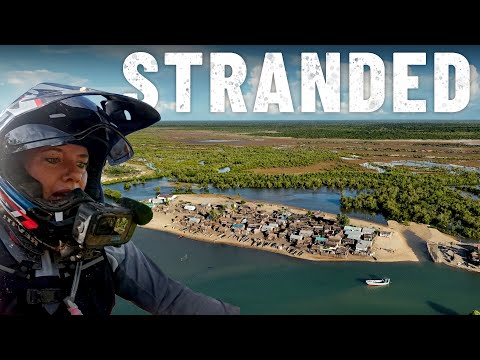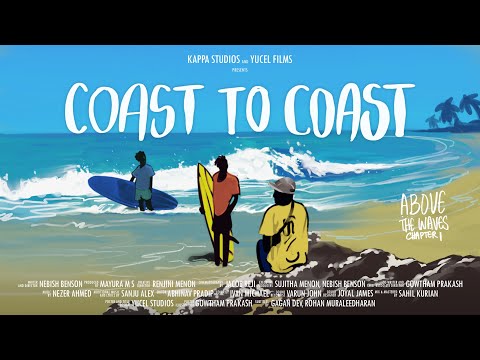Isabel in France: Studying Abroad in Paris, Learning French, Living in France, Touring Europe

Hey, party people! It's Adrian, and I just talked to Isabel about studying abroad in France. [Music] ISABEL: I'm really nervous because everyone seems so smart, and I'm also nervous for the formatting of the course. So far there have been certain moments where I feel overwhelmed because everyone is unknown to me. While it's scary, I'm trying to be as optimistic as much as I can. ADRIAN: I know Isabel from her university here in the states. Last fall she was applying to her program in Paris and having to go through all this bureaucratic hassle to get her student visa from the French government. Well this past January she made it and I've been following her on TikTok and social media, and I finally got to catch up with her this month in March. Hi, Isabel. How are you doing? ISABEL: Good, how are you?
ADRIAN: I'm doing pretty well. So uh thank you for joining us on YouTube to talk about studying in France. I've watched your TikTok, we've got your postcard. Can you tell us a little about yourself and your experience? ISABEL: Well so I'm a student. I'm from the US. I study at a university domestically in the US, but I'm studying at Sciences Po in Paris which is a really big university for people studying international relations and political science.
And in school I study international relations in French so ADRIAN: That sounds great. So are you taking classes in French or in English? ISABEL: I take them in both so I am doing one French class and then three English classes, so they've been very interesting so far. I yeah I'm taking three or no, sorry, two international relations related courses and then one course surrounding French law and then another course on like French culture. ADRIAN: So all right, how's everything going? ISABEL: it's going really well. It's a lot different than in the US. I would say as far as like the formatting and then I mean, really just actually everything is very different, but formatting is like the main thing, and then grading as well, that's a really big difference but it's different but it's still going well. ADRIAN: Good, good, so yes what
are some differences between University in the U.S compared to France that you've been noticing? ISABEL: Yeah okay, so for me I think the biggest difference is in the US like professors are very good about giving back grades and giving feedback about maybe how you could improve in the course, or like where you stand generally in the course, whereas at Sciences Po in my experience, the professors I have not received, I've only received one grade back for the entire semester and it's mid-march, so yeah, I really think it's frustrating, it's very frustrating because I don't know if I need to change anything really, or like how I'm doing overall in the course, so that's a really really big difference. At least going into finals that would be nice but yeah, I really think I just I'm gonna have to do the best I can and hope for the best because no feedback but that's a big difference. Another big difference is the scheduling. So in
the US where you would have like your Monday Wednesday Friday classes and then your Tuesday and Thursday courses, you just meet once a week at Sciences Po, and it's for a two-hour time period, so there are 12 weeks in the semester, so we we just finished our seventh week, so this was only the seventh time I hadn't met any of my all of my professors, which is kind of weird to me because in the US you would have already met them like seven times, like 21 times at least, so that's a big difference. ADRIAN: Huh, that is interesting, very different schedules. Have you been noticing any differences generally and how people live in France versus the US? ISABEL: Yeah, I would say overall there aren't like too many differences. The main two that stick out to me is like shopping for groceries. Typically there's like butcher stand, a place to eat your fruit, a place to get your vegetables. Like supermarkets do exist and I go to the supermarket, but I would say overall to get better quality and fresher and more affordable things, you should go to like a bakery to get your bread, you should go to uh produce stand to get your produce. Like it's all very specific to what like the grocery item is, and generally all of these things are going to be really close to each other. Like on my street there's a butcher, a bakery, and a produce stand all right next to each
other, and then a few shops down there's also like a cheese - a fromagerie is what it's called - there's also a cheese place, so that's a really big difference. Another thing is too like in the U.S I would do like a big grocery run every Sunday or Saturday to like prepare for the week ahead, but you don't really do that here like. It's kind of odd if you're buying like a ton of groceries at once because like everything like there's just so many locations of like produce stands, supermarkets, whatever it may be, that there's not really a need to do that, because people are walking or people are taking the metro there, and it's a lot quicker than like packing up your car, driving to the store, going browsing, like it's just a lot quicker and like there's just not really a need to do that.
And then the second difference is kind of like already touched on, it's like public transportation, like no one really drives, and I mean this could be specific to Paris, but no one really owns a car, no one really has a license, unless you are like have come from a different city prior. But yeah, people mostly take the public transportation, bike - that's a big one - or just walk. I wouldn't recommend walking though if you're coming to Paris because it's so big that like you don't realize how spread apart everything is, but people don't really drive here. ADRIAN: Right, it sounds like there are some urban differences that you're experiencing that I don't experience here. Some of that shopping sounds old-fashioned to me to go to different places, but I also hear a lot about that in other countries. ISABEL: yeah well I I think like everything is just a lot more fresh, and with that though unfortunately become comes like it goes bad really quickly, so you have to eat it.
Because like if I buy strawberries in the US, due to all the preservatives and other things that they put into a lot of fruit, it's gonna not go bad as quickly. But when I go across the street and buy strawberries, it goes bad within like two to three days. ADRIAN: that's interesting. ISABEL: Yeah. ADRIAN: So yeah let's see, on TikTok you've been showing your grocery hauls. What can you tell us more about the food and
drink that you've been experiencing in Paris? ISABEL: Yeah I mean okay, so overall I would say a big thing as far as like drinks is people don't really drink sodas as much. Like I've noticed that that's it's more so seen as like a dessert, whereas like I don't know I feel like it's very common in the US to have, like I mean you just don't regard a soda as that - that's the police siren if you're hearing that - ADRIAN: I cannot hear that. ISABEL: Yeah they're um yeah that's a big thing. Wine is very very cheap at the grocery store. Like you can get a good bottle of wine for like four Euros - ADRIAN: Wow - ISABEL: Which like if I saw four dollar bottle of wine I would be like, don't buy that, like you will probably throw up like ADRIAN: Unless it's a Trader Joe's. ISABEL: Yeah that's true, but here it's very affordable and it's
actually good wine, which I mean obviously there's a ton of wineries so they're very pretty local but that's a really big thing that I've noticed. And then overall groceries are a lot more affordable like a lot more affordable like in the US. ADRIAN: Another thing on your Tick Tock, wow. ISABEL: Yeah, it's so affordable, and like you wouldn't think that though because I thought I'm moving to Paris, like it's going to be really expensive. No, I mean you can yeah you can make it really expensive if
you wanted, but like if you're just an average person like it's very affordable in my opinion. ADRIAN: Just a rumor, but is there a lot of dog poo on the sidewalk? ISABEL: Actually no, I haven't noticed that. There are a lot of dogs but I haven't noticed that actually. ADRIAN: Okay, someone asked me about that. I'm like okay, I'll ask. ISABEL: Yeah no, I have not noticed that. But there is a lot of dogs, like even off leashes. That's a big thing too. Like in the US I feel like it's very like if you're walking your dog in the
street like they need to have a leash on. No, here the owner's dogs, like I'll see a dog that's just walking and I think it's a stray. No, its owner is all the way down the street and they're just kind of walking together meandering, not really paying attention. ADRIAN: That's interesting. Side note, there's a 2013 story from NPR about the Incivility Brigade that enforces the dog poop law in Paris. Uh, what kind of places have you seen around Paris and then where else have you been? ISABEL: Okay, so something that I'm learning about Paris that which, I had been to Paris before but no one explained this to me, so I think it's worth mentioning, that Paris is divided into arrondissements, which means like district or neighborhood, and each arrondissement has like different characteristics about itself. So like I live in the fifth - which they're pretty big so like that's fine to share - I live in the fifth arrondisements and um that's the Latin quarter, so there's like a ton of history and everything like that. But the first arrondissement
is like the city center, so that's going to be more touristy and things like that, so yeah, I just I haven't even made it to like every single arrondissement, but yeah, it's really worth noting that, especially if you're playing like planning on traveling and you know may want to make like an itinerary. I would suggest figuring out like, okay, what are the things I want to do in the first arrondissement, what are the things you want to do in the 19th. I think there's 20 or 21 and it's in the shape of a snail shell, so you have the city center it starts. First is obviously the center. Second, third, fourth, fifth. It goes like that, so - ADRIAN: I'll have to look at a map. ISABEL: Yeah it's really interesting, but it's worth kind of organizing if there's certain attractions you want to do, figuring out which arrondissements it's in, because then you're kind of able to, instead of Metro-ing all over the city, be like, okay we're in the 19th arrondissement for the day, like what attractions are here, and then we'll move on to the next one or whatever, so Personally I would say avoid North Paris, like to stay there, especially if you're like a female solo traveler. It's just not good to be in that area. I
thought that I would be fine there because there was this really cute vintage market that I saw on TikTok that I wanted to go see, and it was in the very very North Paris. Yeah, I did not need to be there. Like I left immediately. It was really not a good place so. ADRIAN: Wow. ISABEL: So I haven't even made it to every arrondissement, but I have been to like pretty much all like
the touristy areas so like Sacre Coeur. That's in North Paris, which like I said you, shouldn't go there alone, but I think Sacre Coeur is like fine. I've been there alone but in around noon so like if you are solo I would go there around like, just make sure you're not there after dark. - But you know I've also
been to like the Eiffel Tower at night. I love going to viewpoints such as on Montmartre where you can see Eiffel the Eiffel Tower sparkling at night time. I've gotten a few pictures of that. And then there's another really cool viewpoint that you can see the Eiffel Tower sparkling from at this place called Galeries Lafayette. And I went there last week and I took a few pictures as well, and it was really pretty. And it's free so that's really good. Really interesting place, and
you can also see the Opera from the top of the Galeries Lafayette as well. Oh, the Arc de Triomphe. That's also a really cool thing, obviously very touristy, but something that is you know quintessential and I've gotten--ADRIAN: Sounds important -- ISABEL: Yeah a very important -- you can go to the top. I really want to do that. I just haven't done that yet. ADRIAN: So have you traveled outside of Paris while you've been there? ISABEL: Yes, so I've been to Lisbon Portugal, Madeira Portugal, which is an island that's owned by Portugal, and it actually, I'm pretty sure it's considered to be on the African tectonic plate, so it's really close to Morocco as where Madeira is located. ADRIAN: How did you travel to these places? ISABEL: I flew to Lisbon, and my roommate and I spent some nights in Lisbon, and then we flew to Madeira, which the airfare is like very affordable over here. I think it was like a 20 Euro round trip from Paris to Lisbon and like a 30 Euro round trip from Lisbon to Madeira ADRIAN: Airfare in the U.S is very expensive compared to some other countries. ISABEL: Yeah it's
really interesting because people will be like, you haven't traveled to these parts of the US?, and I'm like no, because it costs 500 dollary just to fly there, so no I have not. But it's very affordable. I've been to Strasbourg, which is a really interesting region because it, during the like World War One and prior to World War One, that was what was the disputed land between Germany and France, so it kind of went back and forth between being owned by Germany, being owned by France, so it's like a mix of two cultures, so really interesting. Isabel went on to tell me about all these places that she wants to visit because airfare is so much cheaper within Europe than coming from the United States. But next I asked her about my favorite topic, learning a new language. Alright, so something I wanted to ask about was what is it like learning French and speaking French, and how is the French language going for you? ISABEL: I think it's going really well. I have been able to
improve it a lot. My roommate is also, her parents are French, so we also like, if there's something I need to know, she generally will like help me with it. I would say like if especially if you're coming from like an English background and learning French in particular, one of the biggest critiques that I've gotten is like English can be very choppy, like you can take more pauses between things, like you don't realize it obviously because that's what you're speaking, but it's a lot more choppy than a language like French. So when I'm speaking French I'm applying like English habits to French, so that amplifies my accent. So the biggest thing I've got [from] native speakers is like speak faster and connect more of your words.
So that's something I'm really trying to work on, is like if there's something I know I want to say, you just kind of like running through it and saying it faster than like being choppy about it. Because I think as English speakers tend to do stuff like that without realizing it. ADRIAN: Okay, so is it really comfortable or are you understanding most people around you? ISABEL: Oh yeah yeah, I've been really fortunate and like really happy that I've been able to communicate with a lot of people. Because an assumption that like a lot of people have when coming here is that like, oh they'll speak English. Which a lot of people do, but there are a lot of people don't, so it's really good to even just know some like basic phrases and stuff like that. So I've been able to pretty much communicate with everyone, and I can't really there's not really an instance that sticks out to me that I was unable to communicate. Like even if I don't understand every word, I'll
hear a word that I know, so I under-- like I get the gist of what they're saying. So that's been good. I've been able to actually translate for like English-speaking people before. ADRIAN: Oh, that's cool. ISABEL: Yeah it's been really really good especially for like improving my language ability ADRIAN: Can you tell me about this slang? ISABEL: Yes definitely. So something that's really interesting with everyday speaking
here that's actually not talked about enough, at least in French classes I've taken, is something called verlan. And basically, what it is, is it's Pig Latin essentially, so what you do is you take a word, and you reverse it. So like the slang word and, this is not like it's not derogatory or anything like that, but like the slang word for woman, which the original word is femme, f-e-m-m-e, you take it and you reverse it, and it becomes meuf and that's what people were, like if you go out and you are talking to people, that's what they would say. Oh like like so like that's how they would refer to it. So
obviously being a newcomer that was hard because I was just like, I don't what is a meuf. Like I know femme but what is like, I don't know what that is. I'm trying to think of like -- even the word verlan um comes from the word l'envers which means inverse, and they inverse the word inverse and got verlan Well Isabel, thank you for your time. I know you're busy with some other things and so I'll be letting you go now. ISABEL: Okay, great. Have a great rest of your day. ADRIAN: Thank you for joining us. ISABEL: Okay.
ISABEL: It's an odd feeling, the feeling of yearning for home while enjoying the new place for my feet are planted. It begs the feeling of discomfort while feeling content with being in such a foreign place . I feel excited yet scared, nervous yet at peace, and out of place, yet exactly where I'm supposed to be. But I welcome it all. I'm becoming exactly who I'm meant to be through this, and that makes me feel happy above all else. Well thanks for joining us and come back to the channel soon. Have a good one. [Music]
2023-04-03 23:28


